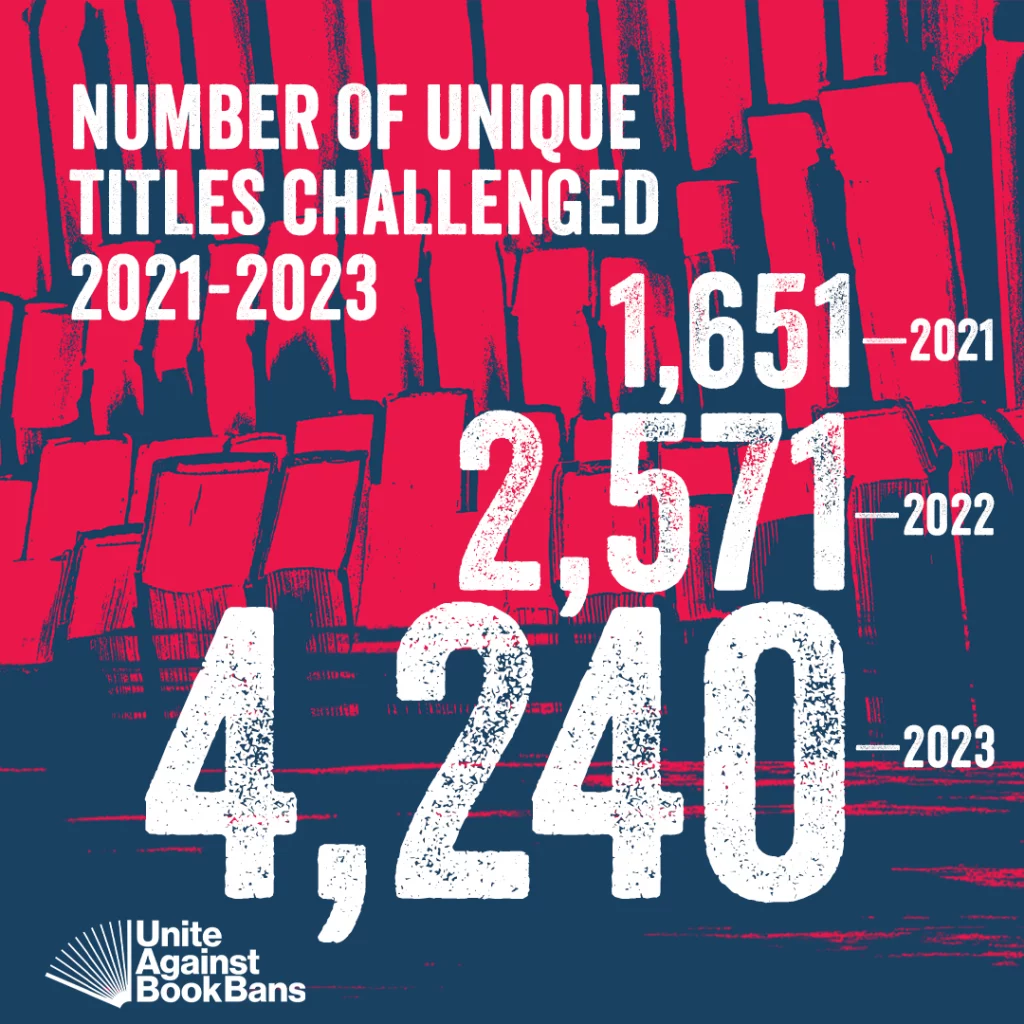It’s National Library Week. Join us in honoring librarians and library workers for all they do for readers and our communities every day. Visit your local library today to learn all that it has to offer.
As part of this week-long celebration, today, Monday, April 8 is Right to Read Day. Read on to learn how to participate in this national day of action and protect our freedom to read.

A record 4,240 unique book titles were targeted for censorship in 2023, a 65% increase over the 2,571 unique titles targeted in 2022 and a staggering 128% increase over 2021 numbers.
Pressure groups in 2023 focused on public libraries in addition to targeting school libraries. The number of titles targeted for censorship at public libraries increased by 92 percent over the previous year; school libraries saw an 11 percent increase.
“Every challenge to a library book is an attack on our freedom to read. The books being targeted again focus on LGBTQ+ and people of color. Our communities and our country are stronger because of diversity. Libraries that reflect their communities’ diversity promote learning and empathy that some people want to hide or eliminate,” said American Library Association President Emily Drabinski. “Libraries are vital institutions to each and every community in this country, and library professionals, who have dedicated their lives to protecting our right to read, are facing threats to their employment and well-being.”
The majority of Americans trust and respect library professionals. This recent survey from EveryLibrary Institute and Book Riot illustrates that librarians are valued in society and are central to education and communities.
Ready to advocate on behalf of libraries and intellectual freedom?
Take Action!
- Thank a library worker.
- Check out and read a banned book.
- Contact your elected officials using the United Against Book Bans Action Toolkit.
- Register to vote.
- Report censorship.
- Get involved with your local library.
- Write a letter to your local school or library boards, or attend a meeting.
- Spreading the word about the dangers of book challenges and bans on Facebook, Instagram, and Twitter using the hashtags #UniteAgainstBookBans and #RightToReadDay.
- Make a donation to the LeRoy C. Merritt Humanitarian Fund, which provides financial support for librarians facing discrimination or threats to their employment for defending intellectual freedom.
Lee & Low Creators on the Power of Books








